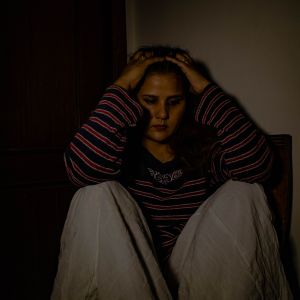 Earlier this year, a case of Monkeypox was reported in London, followed by reports of further cases throughout the UK and it is now spreading rapidly in many other countries. Understandably, people are anxious whenever an outbreak of an infectious disease occurs. Our response to illness and disease has only been heightened by our experiences during the Covid-19 pandemic. Monkeypox is from the same family of viruses as smallpox and has officially been declared a global health emergency by the World Health Organisation, sparking concerns around the world.
Earlier this year, a case of Monkeypox was reported in London, followed by reports of further cases throughout the UK and it is now spreading rapidly in many other countries. Understandably, people are anxious whenever an outbreak of an infectious disease occurs. Our response to illness and disease has only been heightened by our experiences during the Covid-19 pandemic. Monkeypox is from the same family of viruses as smallpox and has officially been declared a global health emergency by the World Health Organisation, sparking concerns around the world.
While this news is enough to give most people pause, for some the idea of another disease to worry about has left them struggling. The ongoing pressure of uncertainty over the last few years has led to a sharp increase in the number of people living with health anxiety.
This increase in anxiety linked to a new global crisis isn’t unfamiliar. In 2020 The Lancet reported a rise in depressive and anxiety disorders due to the Covid-19 pandemic.
Most of us are guilty of Googling a symptom when we have a cold or worrying that a sore throat or sudden change in digestion may be something worse. But health anxiety is more than that. People affected by health anxiety have repeated, obsessive thoughts that they have (or will have) a physical illness. The most common health anxieties tend to centre on serious conditions such as cancer, HIV, AIDs, etc., however any illness can become the fixation of someone’s worries.
Health anxiety can cause significant distress; sufferers spend large amounts of time worrying that their GP has misdiagnosed them and catastrophising that they’re going to fall seriously ill or die. This preoccupation impacts negatively upon their lives, affecting work, study and relationships because of the worrying and urges to seek reassurance about their health. The physical symptoms of anxiety can become signs of health problems in themselves; a racing heart is a sign that they’re about to have a heart attack.
In 2017, a report was released which found that mental health issues were the most common reason people take time off work. Once you become anxious about one thing or area of your life, it can spread and manifest itself into many different areas, explains the National Council for Hypnotherapy. “It may be fear of being around other people; it may be anxiety in specific social situations, anxiety in your relationships with particular people at home, at school or at work. Suddenly, anxieties which seemed manageable can shift and grow, becoming incapacitating.
The aim of hypnotherapy for health anxiety is to provide you with a different perspective. Working with a hypnotherapist, you can reduce or remove the fear of your health being in danger and replace it with different, more positive suggestions. When you work with a hypnotherapist, they will often teach you relaxation techniques, which can help to calm your mind when anxiety pops up. Hypnotherapists will regularly recommend self-help techniques too, such as breathing exercises and self-hypnosis.
“Hypnotherapy unlocks the potential you have to break free of negative thought patterns, and to react more positively and more confidently to situations in your life that may have previously made you anxious.”
To contact your nearest NCH-registered therapist and start the process of shedding your anxieties, click here.
Photo by Hassan Vakil on Unsplash
